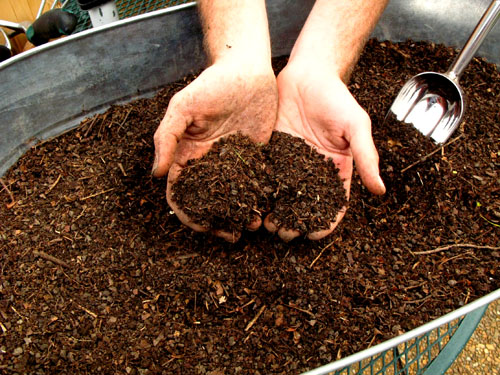Kia Corporation partnered with Dubai-based start-up, The Waste Lab, and launched a three-stage GCC based campaign whilst transforming food waste into healthy compost. The partnership, commenced at the start of Ramadan, nudging consumers to rethink their practices and mindset around food wastage.
The Waste Lab is a women-led, impact-driven startup based in the UAE, with a mission to reduce and repurpose food waste. Kia has always been an advocate of sustainable mobility solutions. In line with their vision of creating a positive impact on the environment, Kia is facilitating The Waste Lab as part of the collaboration with the Kia Niro Hybrid in the UAE, the Kia K5 Hybrid in Oman, and the Kia K8 Hybrid in Saudi Arabia, as a means of transportation of the food waste into nutrient-rich compost.
What is composting?
Composting is the natural process of recycling organic matter, under controlled conditions, into a soil amendment. Everything in nature eventually decomposes and goes back into the soil. Composting brings together different players to do this work and speeds up the process. The end product is “compost” – the decomposed organic matter’s rich nutrients that can fertilize and enrich the soil for gardening, landscaping, and agriculture.
What is the process?
Generally, three main stages are involved in composting: first, compost goes through the mesophilic stage, where decomposition speeds up and produces heat. Next is the thermophilic phase, featuring high temperatures and the further breakdown of organic matter. Last is the curing stage, where compost cools and matures. Each of the three composting stages comes with a different team of composting microbes, creatures, unique characteristics, and a specific purpose.
Prior to the composting process, it is important to guide people and target entities on proper waste separation, including organic and non-organic materials, and to make sure only suitable materials are sent for composting. By separating organic waste at source, it can be composted to produce a valuable output that enriches the soil, while non-organic waste can be recycled. The Waste Lab then uses a data tracking a routing system to facilitate the collection process. As a sustainable mobility solutions provider, Kia has been supporting The Waste Lab’s operation, by providing them with hybrid vehicles and aiding in raising awareness around the global-wide issue of food waste.
The second step of composting involves the actual composting process, where the organic waste is transformed into nutrient-rich soil. By maintaining proper carbon to nitrogen ratios, aeration, hydration, and optimal temperatures, compost is created as a soil amendment that can improve the health of the soil and the quality of the produce. This step is one the most significant steps as it ensures, the quality of the compost and its benefits ahead.
The third stage is to ensure the efficient utilization of the compost made. It involves using the finished compost to grow healthy nutrient-rich food. Compost is a great soil supplement that can improve soil health but also reduces the waste generated while growing super-local foods.
There are multiple benefits of composting to the overall ecosystem. It reduces the waste in landfills (organic waste accounts for 40% to 60% of landfills) as well as the use of chemical applications. The process also aids in building healthy soil by storing atmospheric C02 and plant nutrients which enhances plant growth and the overall environment around. The composting initiative by The Waste Lab also creates local resources, encouraging food security and a culture that grows home-based plants.
Yaser Shabsogh, Chief Operating Officer, Regional HQ, Middle East & Africa, Kia, commented, “We are excited about our partnership with The Waste Lab and engaging with the community in our collective effort to promote sustainable solutions. Our aim is to generate support from local communities for sustainable initiatives in the region. We aim to shift people’s mindset around food waste and responsible consumption. At Kia, we hold a deep-seated commitment to reducing the carbon footprint and are always trying to pursue innovative means to pursue sustainable solutions. We understand that this commitment has the power to transform our world and bring the cycle of life full circle.”
Lara Hussein and Ceylan Uren, The Waste Lab co-founders also commented: “As we prepare for Ramadan, we often see a surge in excessive buying and discarding of food. However, this time can be used to promote more mindful consumption and sustainability. By emphasizing the advantages of sourcing locally and minimizing food waste, we can raise awareness and promote responsible consumption. Additionally, diverting these precious resources from landfills can have a positive impact on reducing greenhouse gas emissions and supporting soil health, we believe that this initiative with Kia can be transformative and have a positive impact on our world, and we are excited to bring the community onboard to galvanize support. We are grateful to Kia for lending their support and collaborating on this impactful project.”







